You spend significant resources driving traffic to your website. You create content, run ad campaigns, and build landing pages. But a shocking 96% of visitors aren't ready to buy. They enter your funnel and then disappear. The critical question is: where are they going, and why?
Without the right tools, your marketing funnel is a black box. You see traffic go in, but you can't pinpoint the exact spots where potential customers lose interest and drop off. This leads to wasted ad spend, missed opportunities, and stalled growth.
Funnel tracking tools illuminate this journey, turning your black box into a clear, actionable roadmap for conversion. This guide breaks down what funnel tracking is, why it's essential, and reviews the top tools on the market.
Key Takeaways:
- Funnel tracking tools are essential for visualizing the customer journey. They identify where users drop off, helping you optimize for higher conversions.
- A complete funnel analysis requires tracking key metrics at each stage: Awareness, Interest, Consideration, and Conversion.
- The best tools fall into several categories: web analytics (Google Analytics), CRMs (HubSpot), product analytics (Mixpanel), and data analytics platforms (Improvado).
- Data integration is the secret weapon. Centralizing data from all your tools provides a single source of truth to make smarter, faster decisions.
What Are Funnel Tracking Tools? And Why They're Non-Negotiable
Funnel tracking tools are software platforms that help businesses monitor and analyze the customer journey. They map how users move through a series of steps, from first discovering a brand to making a final purchase. This process is often called marketing funnel analysis.
This visibility is not just a nice-to-have. It's a core component of modern marketing.
The Core Benefits of Funnel Tracking
Implementing these tools provides several immediate advantages:
- Identify funnel leaks: Pinpoint the exact stages where you lose the most potential customers. Is it a confusing checkout page? A weak call-to-action? Data will show you.
- Optimize conversion rates: By understanding user behavior, you can make targeted improvements. A/B testing landing pages or refining email copy becomes data-driven.
- Improve user experience (UX): See where users get stuck or frustrated. This insight allows you to create a smoother, more intuitive journey that encourages conversion.
- Maximize marketing ROI: Funnel analysis reveals which channels and campaigns bring in the most valuable customers. You can then reallocate your budget to what actually works.
Understanding the Modern Marketing & Sales Funnel
The traditional marketing funnel is a linear path. While simple, it doesn't always reflect today's complex customer journeys. Customers might jump between stages, do their own research, and interact with your brand on multiple channels before converting.
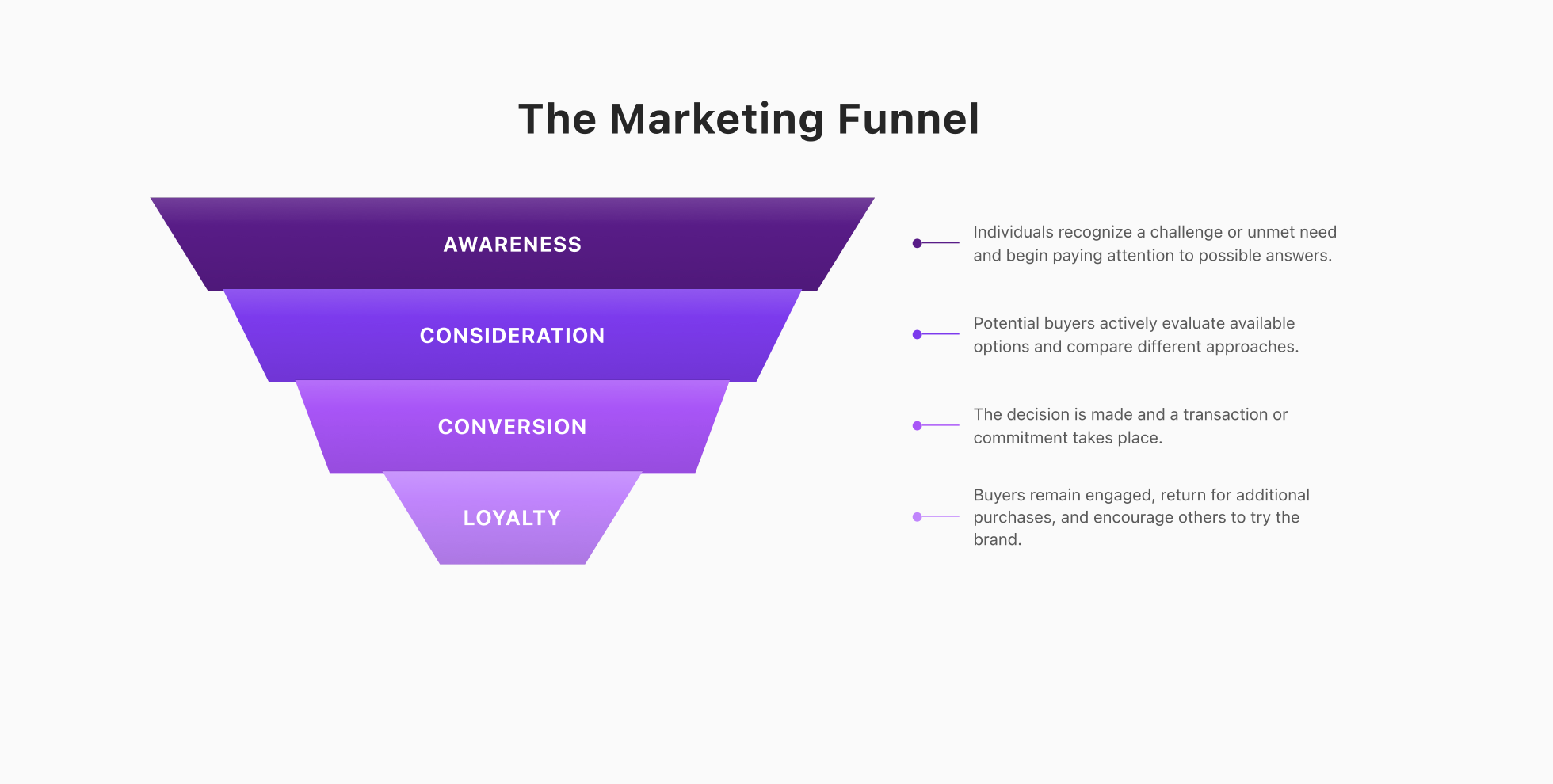
- Awareness (Top of Funnel or TOFU): A potential customer first learns about your brand. They are not yet ready to buy. They are simply identifying a problem or need.
- Interest and consideration (Middle of Funnel or MOFU): The prospect shows interest. They begin researching solutions. They might download an ebook, watch a webinar, or compare your product with competitors.
- Conversion (Bottom of Funnel or BOFU): The prospect is ready to make a decision. They might request a demo, start a free trial, or add an item to their cart. This is the final action stage.
- Loyalty and advocacy: The journey doesn't end at purchase. Post-conversion, the goal is to turn customers into repeat buyers and brand advocates who generate referrals.
Effective funnel tracking tools can map this non-linear journey. They connect touchpoints across different channels to give you a cohesive view of how a user truly interacts with your brand.
Key Metrics to Track at Every Funnel Stage
To properly analyze your funnel, you need to track specific metrics at each stage. This data provides the context you need to make informed decisions. A robust marketing analytics strategy is built on tracking these KPIs.
Awareness Stage Metrics
- Impressions: Total ad or content exposures. Track by channel and campaign. Monitor frequency to avoid overexposure.
- Reach: Unique users exposed. Compare reach to total addressable audience to assess market penetration.
- Website traffic: Sessions and users by source, campaign, device, and geo. Evaluate new vs. returning visitors to measure acquisition depth.
- Cost per 1,000 impressions (CPM): Efficiency of awareness spend. Helps benchmark paid media efficiency across channels.
- Engagement rate: Video views, scroll depth, or content interactions. Indicates message resonance beyond passive exposure.
Interest & Consideration Stage Metrics
- Click-through rate (CTR): Measures relevance of targeting and creative. Analyze by audience, keyword, and placement.
- Cost per click (CPC): Indicates auction competitiveness and targeting efficiency. Rising CPC may signal saturation or weak quality signals.
- Bounce rate: Measures landing page alignment. High bounce often indicates mismatch between ad message and page intent.
- Pages per session: Indicates content depth and buyer research behavior.
- Lead generation volume: Form fills, demo requests, gated content downloads. Track by campaign and audience segment.
- Marketing qualified leads (MQLs): Leads meeting defined scoring thresholds. Define scoring rules clearly and align with sales.
Conversion Stage Metrics
- Conversion rate (CVR): Track by funnel step, not just final sale. Analyze landing page CVR separately from checkout CVR.
- Cost per acquisition (CPA): True acquisition cost per customer or opportunity. Segment by channel to guide budget allocation.
- Return on ad spend (ROAS): Revenue divided by ad spend. Monitor alongside margin to avoid scaling unprofitable campaigns.
- Sales qualified leads (SQLs): MQLs accepted by sales. Track MQL-to-SQL conversion rate to assess lead quality.
- Pipeline value and revenue: Track influenced pipeline and closed-won revenue. Attribution modeling is critical here.
The goal is not just to collect metrics. It is to understand where performance degrades and which lever improves ROI. A structured KPI framework turns funnel analysis into operational decision-making.
The Top 10 Funnel Tracking Tools for 2026 (Detailed Review)
This section reviews the best tools available. We've broken them down by their primary function to help you build the perfect marketing stack.
No single tool does everything, which is why a data integration strategy is so important.
1. Improvado (For Data Integration and Unified Analytics)
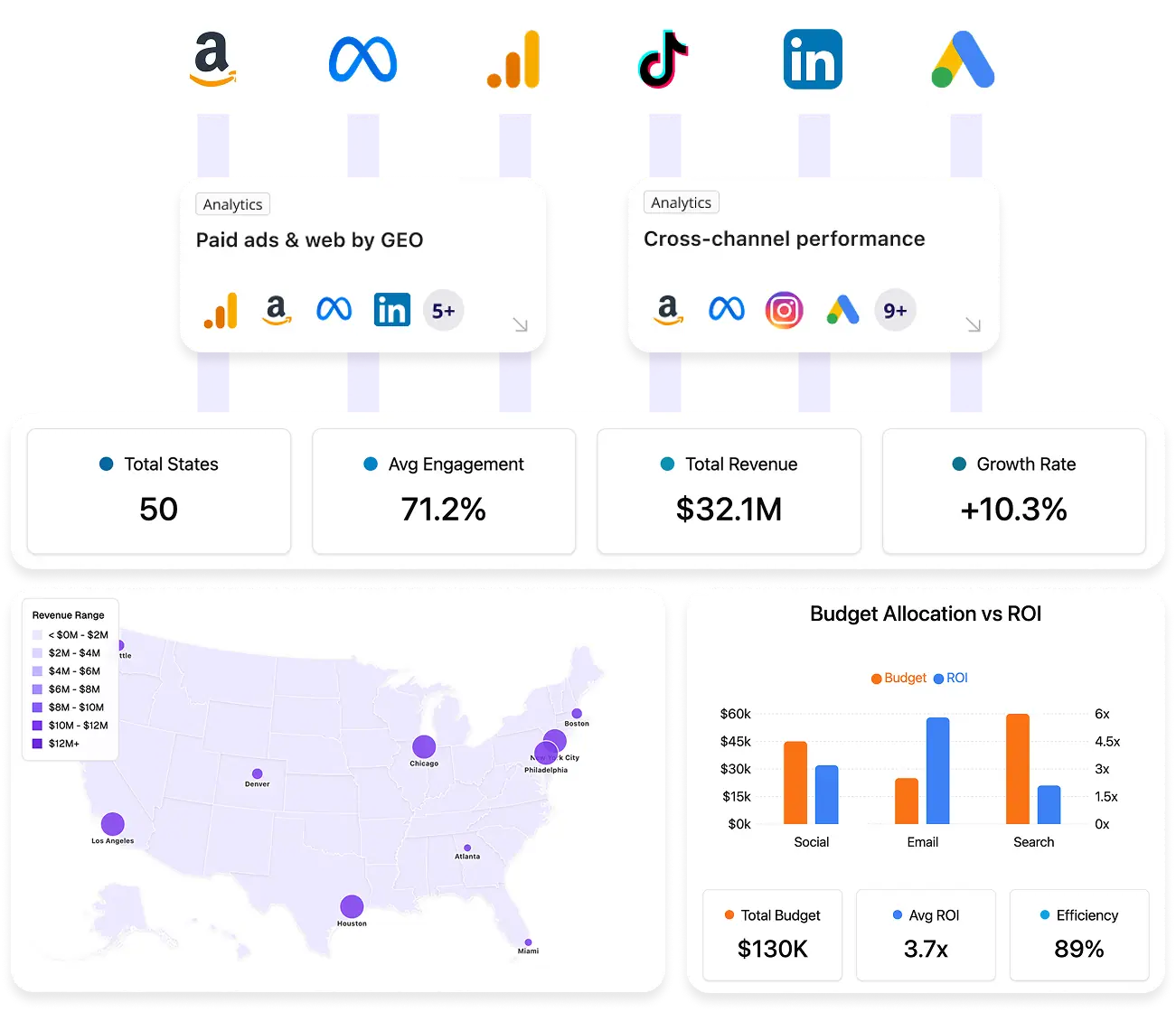
Improvado is not a front-end funnel builder. It is the data foundation that makes accurate funnel tracking possible.
Most funnel tools visualize only what exists inside one platform. They do not reconcile ad platforms, CRM stages, revenue data, and offline conversions. Improvado centralizes all of this into a governed dataset. That is what enables true funnel analysis.
Improvado connects to 500+ marketing, sales, and analytics systems. It extracts raw event-level and aggregated data via APIs. It standardizes schemas, aligns identifiers, and loads analysis-ready datasets into a warehouse or BI tool.
This creates a unified funnel from first touch to closed revenue.
Key Features for Funnel Tracking:
- Cross-channel funnel stitching: Aggregates spend, clicks, sessions, leads, opportunities, and revenue across paid media, CRM, email, and analytics tools. Enables full-funnel visibility across acquisition, MQL, SQL, pipeline, and closed-won stages.
- Identity and entity mapping: Aligns campaign IDs, UTMs, user identifiers, and account records across systems. Reduces misattribution caused by disconnected platforms.
- Automated metric normalization: Standardizes definitions such as leads, opportunities, revenue, CAC, and ROAS. Eliminates inconsistencies across channel reports.
- Advanced data analysis: Provides a structured schema designed specifically for marketing funnel analysis. Supports cohort analysis, multi-touch attribution, pipeline velocity, and stage conversion rates inside BI tools like Tableau, Power BI, and Looker Studio.
- AI Agent for funnel diagnostics: The Improvado AI Agent allows marketers to ask questions like: “Where is conversion dropping between MQL and SQL?” or “Which channel drives the highest pipeline-to-revenue conversion?” The agent generates instant visualizations and summaries without SQL or manual report building.
Improvado does not just visualize funnel stages. It ensures the underlying data is unified, governed, and attribution-ready. That is what makes funnel optimization reliable at scale.
2. Google Analytics (For Web Analytics)
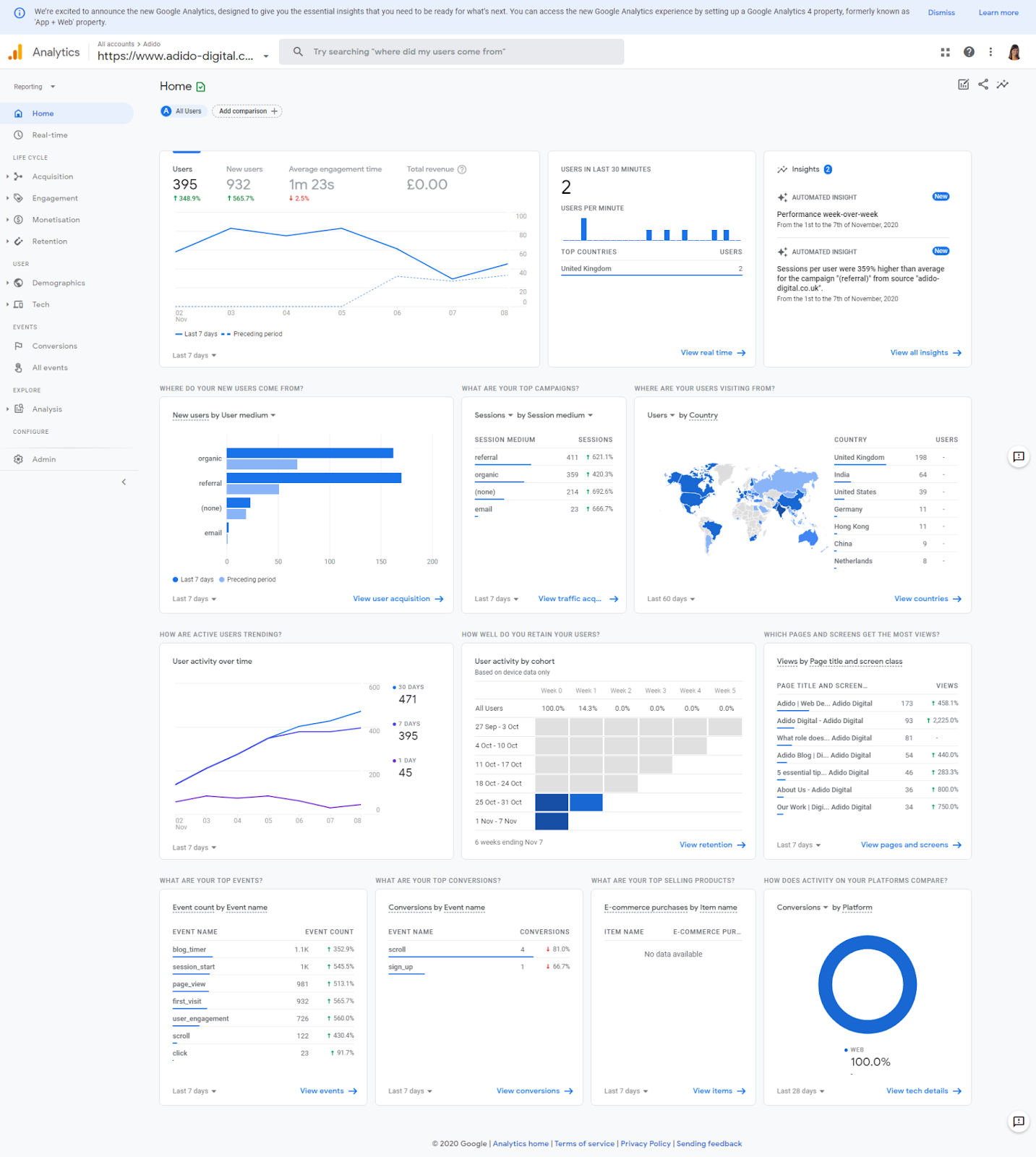
Google Analytics (GA4) is a powerful, free tool for tracking website traffic and user behavior. It’s often the first funnel tracking tool businesses adopt. It excels at showing you how users find your site and what they do once they arrive.
Key Features for Funnel Tracking:
- Funnel exploration reports: Create custom funnels to visualize how users navigate through a specific sequence of steps on your site, like a checkout process.
- Audience segmentation: Analyze the behavior of different user segments (e.g., by traffic source, location, or device) to see how their journeys differ.
- Goal and conversion tracking: Set up specific events as conversions, such as form submissions or purchases, to measure the success of your funnel's final stage.
3. HubSpot (For CRM & Marketing Automation)
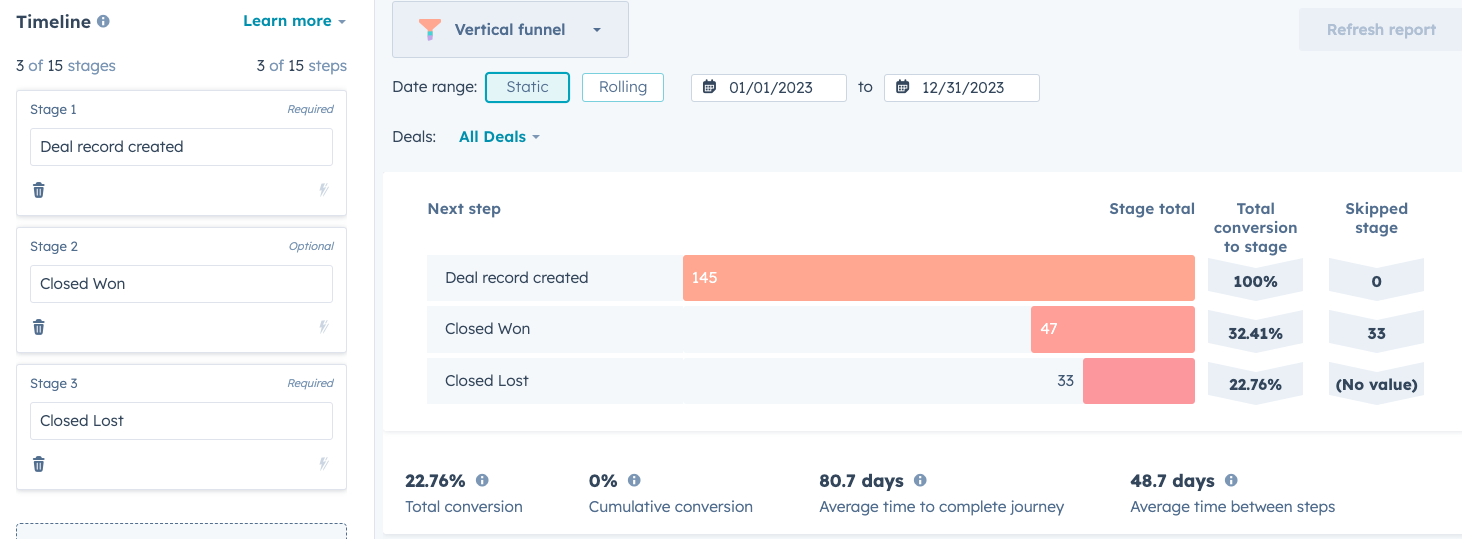
HubSpot is an all-in-one platform that combines marketing, sales, and service tools with a powerful CRM at its core. It’s excellent for tracking leads from their first interaction all the way through to becoming a loyal customer.
Key Features for Funnel Tracking:
- Contact management: Every lead interaction is tracked on a single contact record, giving you a complete history of their journey.
- Lifecycle stage reporting: Automatically categorize contacts as subscribers, leads, MQLs, SQLs, and customers to analyze your funnel's health.
- Marketing automation: Nurture leads through the funnel with automated email workflows triggered by specific user actions or properties.
4. Mixpanel (For Product Analytics)
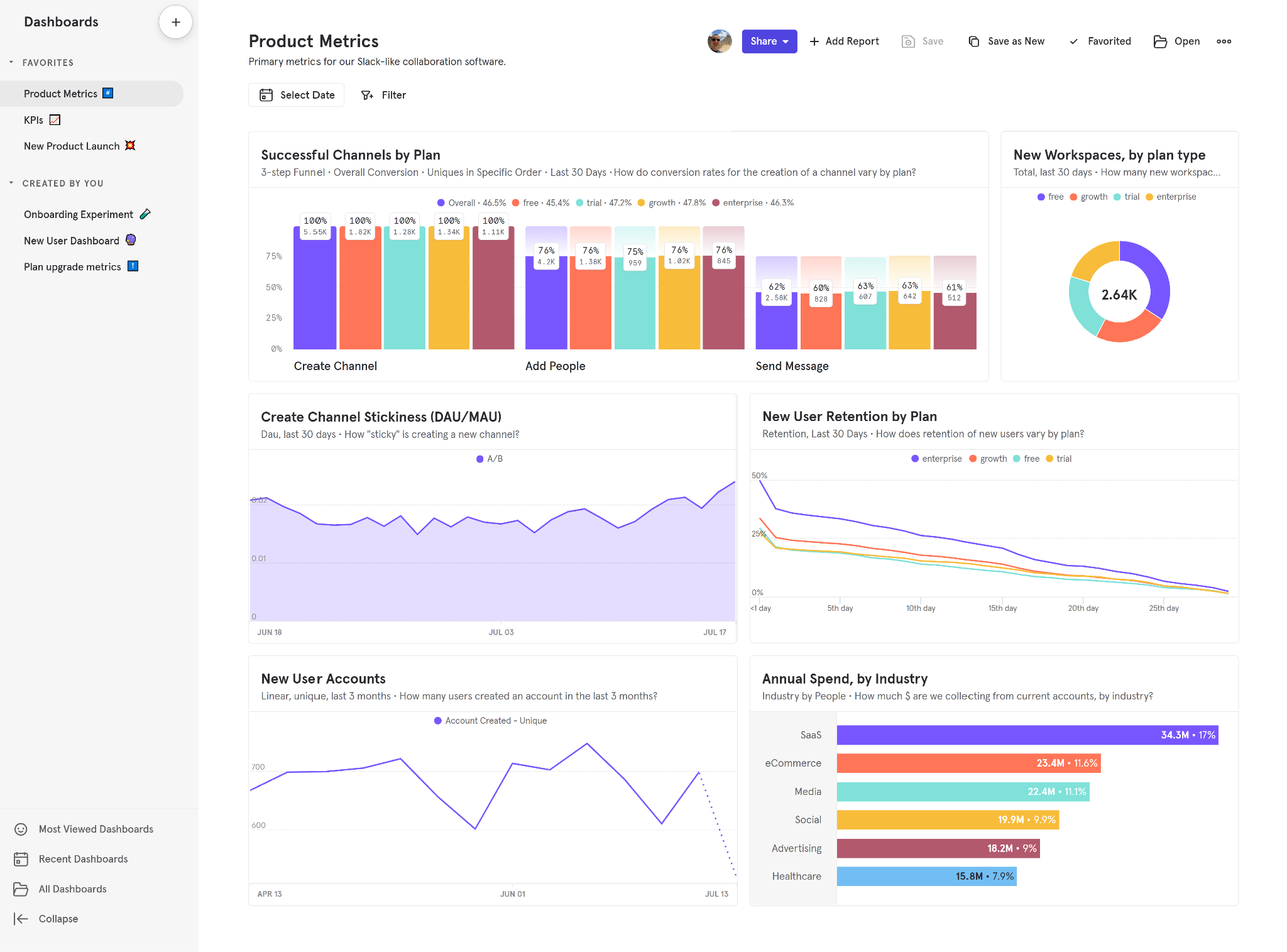
Mixpanel is a product analytics tool designed to help you understand user behavior within your app or software. It focuses on event-based tracking, making it ideal for analyzing how users engage with features and progress from activation to retention.
Key Features for Funnel Tracking:
- Funnel reports: Easily build funnels to see conversion rates between key actions in your product, like 'Signed Up' → 'Created Project' → 'Invited Teammate'.
- Flow reports: Discover the most common paths users take within your product, revealing both intended and unexpected user journeys.
- Retention analysis: See how many users return over time after performing a specific action, which is key for understanding the "Loyalty" stage of the funnel.
5. Amplitude (For Product & Digital Analytics)
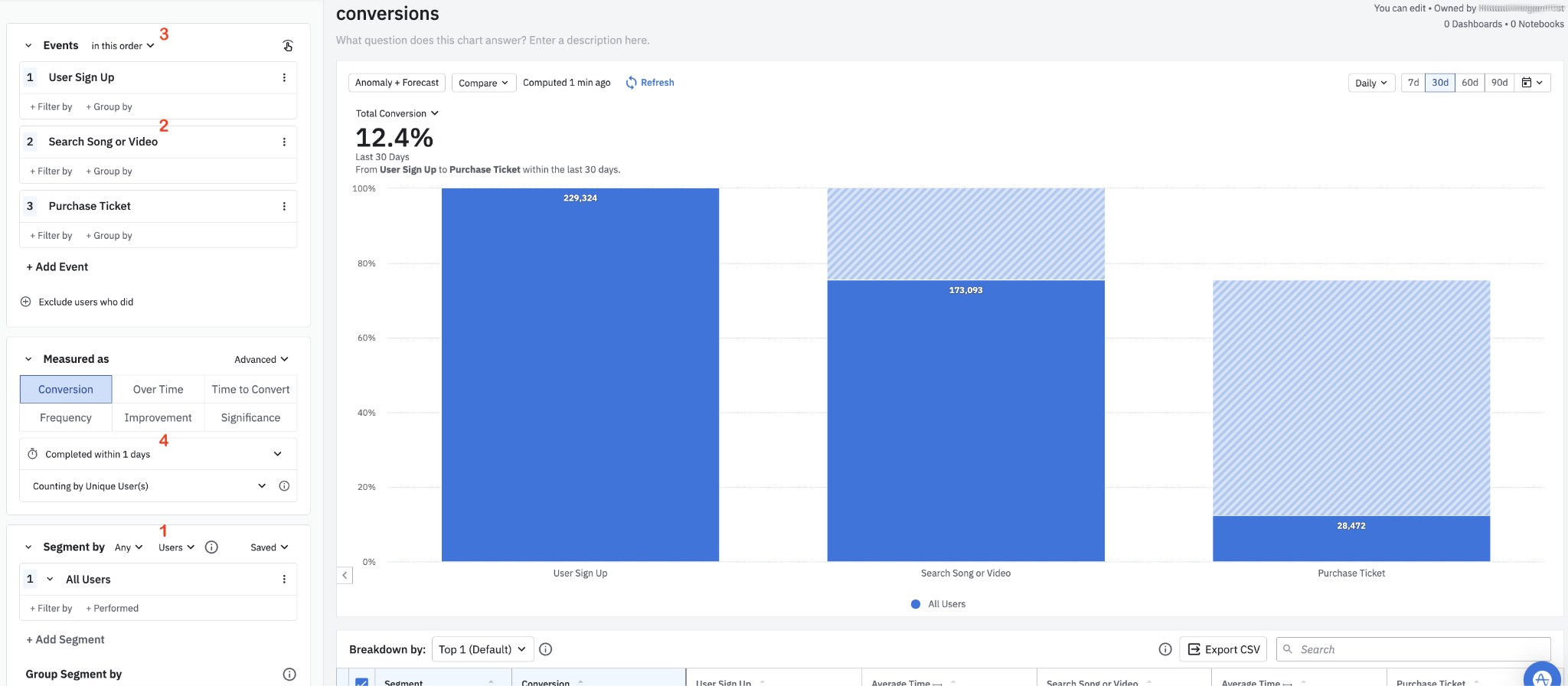
Similar to Mixpanel, Amplitude is a leading product analytics platform. It provides deep insights into the customer journey within digital products. It helps teams understand what behaviors lead to better outcomes like conversion and retention.
Key Features for Funnel Tracking:
- Funnel analysis charts: Identify drop-offs between specific steps and understand the conversion timelines for different user segments.
- Pathfinder: Uncover all the different paths users take to and from any event, helping you optimize the customer journey.
- Behavioral cohorts: Group users based on their actions. This allows you to see if users who perform a certain action convert at a higher rate.
6. Hotjar (For Behavior Analytics)
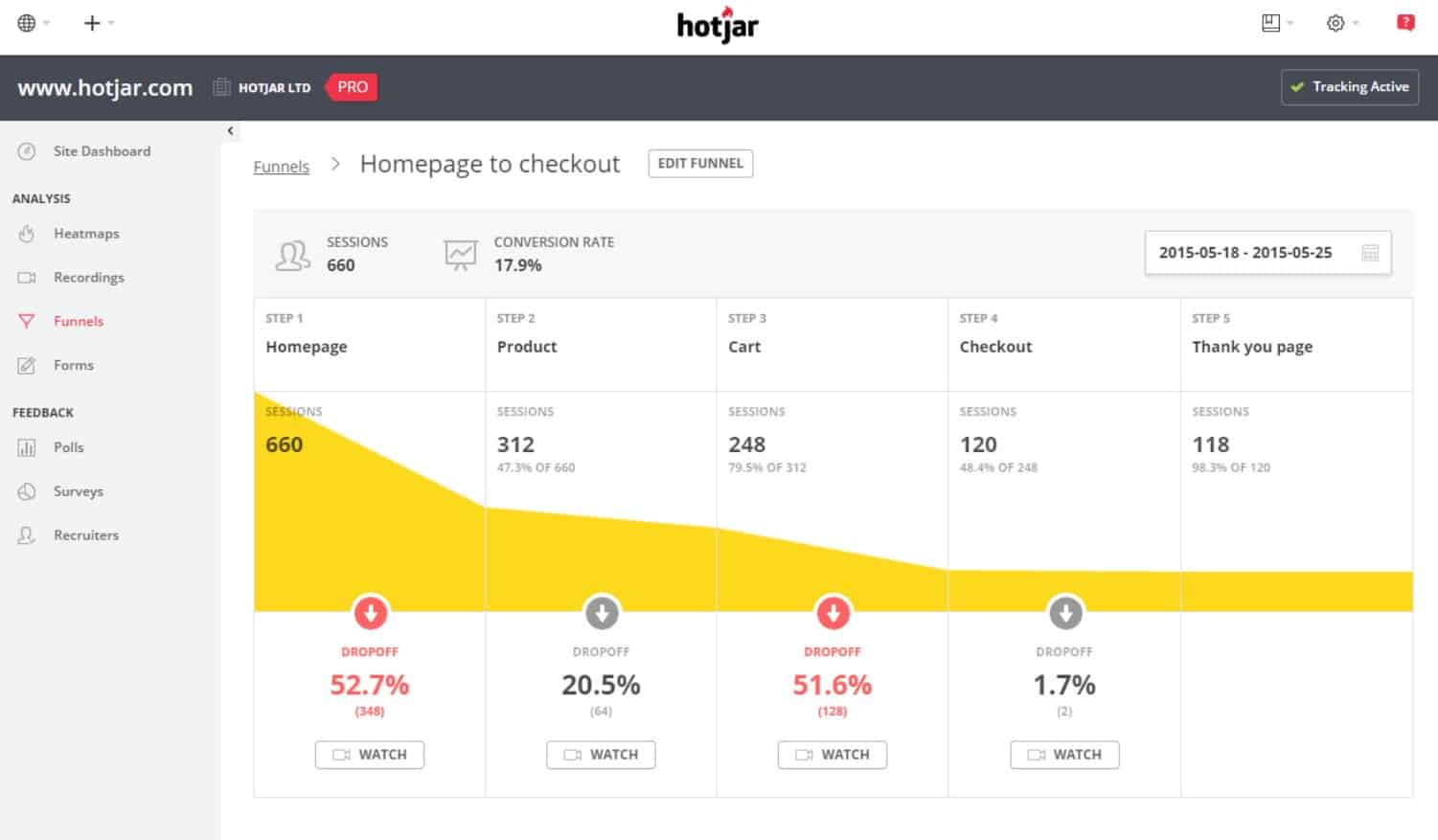
Hotjar gives you qualitative data to understand the "why" behind your numbers. While Google Analytics shows you *what* users did, Hotjar shows you *how* they did it through visual tools.
Key Features for Funnel Tracking:
- Heatmaps: See where users click, move, and scroll on your pages. This helps identify which elements are engaging and which are being ignored.
- Session recordings: Watch anonymized recordings of real user sessions to see exactly where they encounter friction or get confused.
- Funnels: Build simple funnels to see where users drop off and immediately watch recordings of those who dropped off at a specific step.
7. ActiveCampaign (For Email Marketing & Automation)
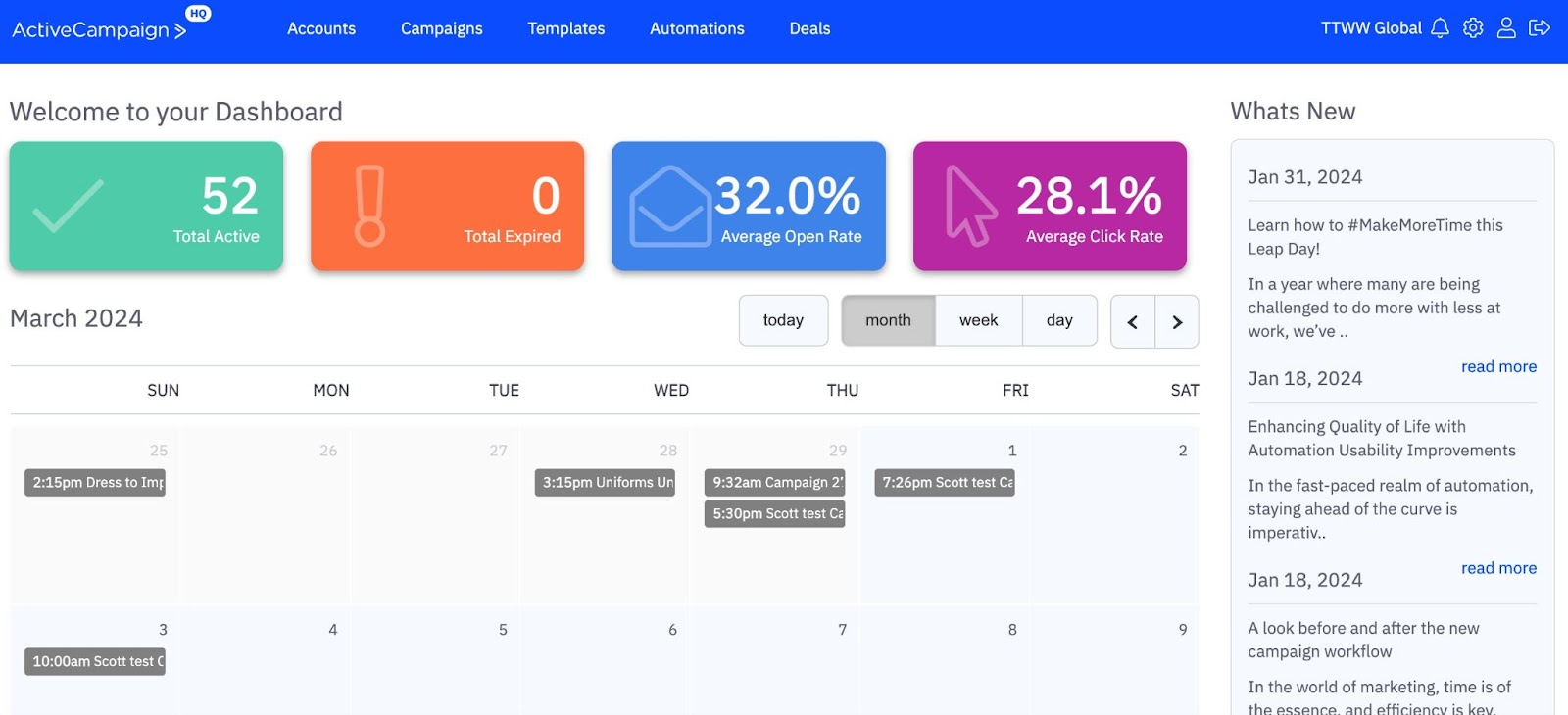
ActiveCampaign is a customer experience automation platform. It specializes in creating sophisticated automated workflows to guide leads through the middle and bottom of the funnel. Its strength is in personalized, timely communication.
Key Features for Funnel Tracking:
- Visual automation builder: Create complex if/then workflows that send emails, update contact records, and notify sales reps based on user behavior.
- Lead scoring: Assign points to leads based on their actions (e.g., opening an email, visiting the pricing page) to identify the hottest prospects.
- Site tracking: Track when contacts visit your website and use that data to trigger personalized automations.
8. Salesforce (For Sales Funnel Tracking)
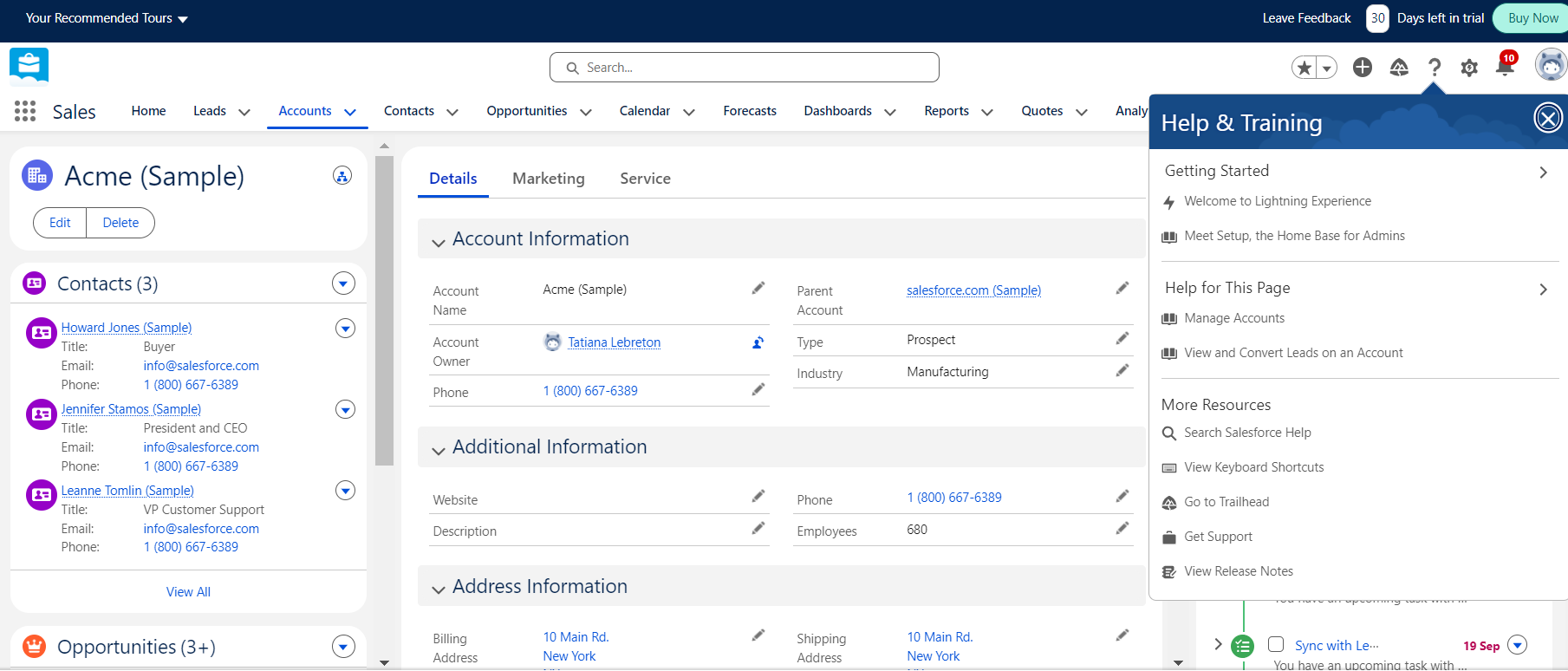
Salesforce is the world's leading CRM for sales teams. It provides unparalleled visibility into the sales pipeline, tracking deals from the SQL stage through to close. It's the definitive tool for tracking the BOFU stage in B2B contexts.
Key Features for Funnel Tracking:
- Opportunity stages: Customize your sales pipeline stages to track how deals progress from qualification to negotiation and closing.
- Pipeline reports and dashboards: Get a real-time view of your sales funnel, including conversion rates between stages and overall pipeline value.
- Lead and contact management: Provides a complete view of every interaction with a prospect, ensuring a smooth handoff from marketing to sales.
9. FullStory (For Digital Experience Intelligence)
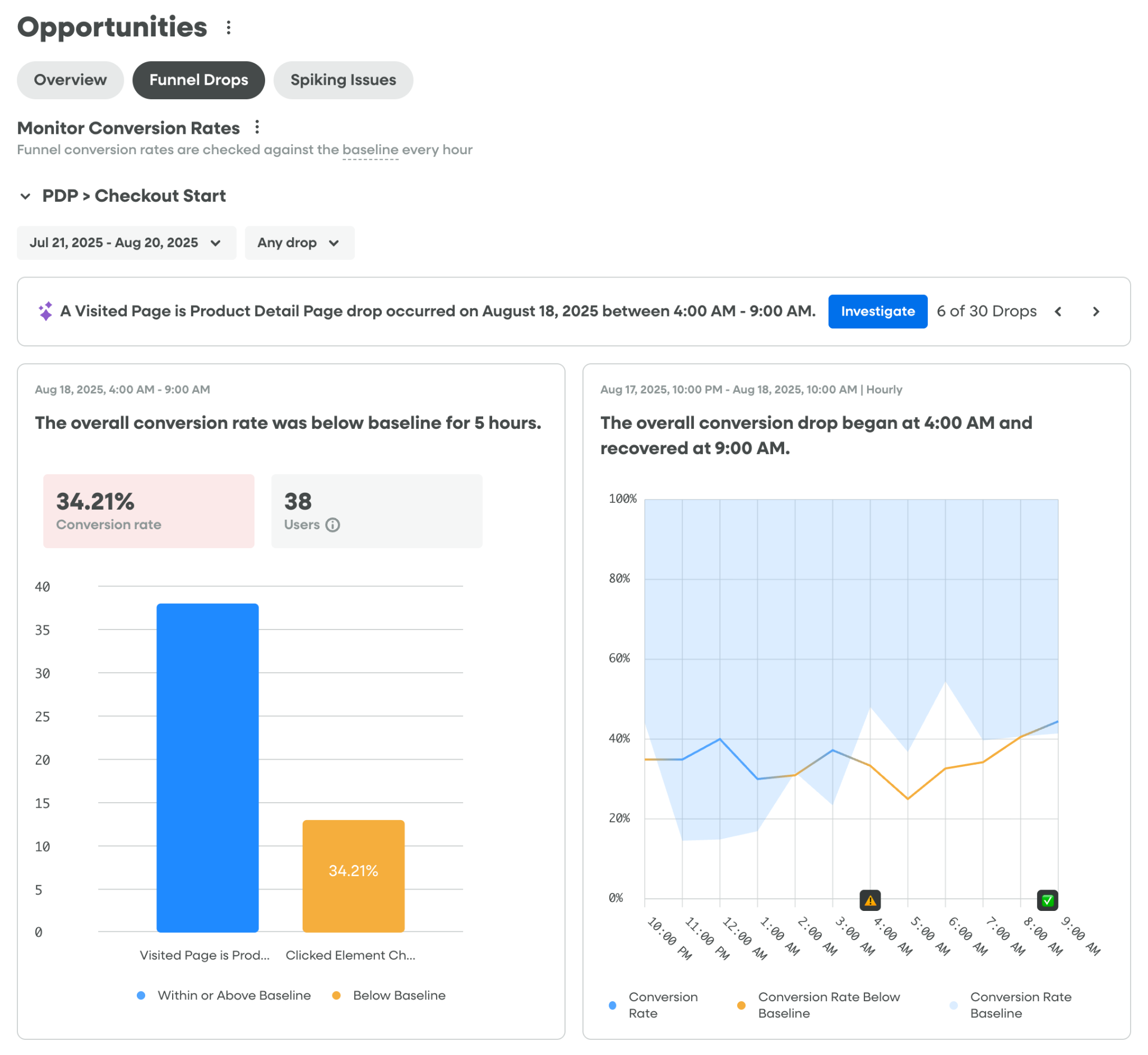
FullStory goes a step beyond session replay by automatically indexing every user interaction on your site or app. This allows you to search for any event or user frustration signal and instantly find relevant session recordings.
Key Features for Funnel Tracking:
- Session replay: Watch pixel-perfect replays of user sessions to diagnose bugs and usability issues that cause funnel drop-off.
- Frustration signals: Automatically detects user frustration, such as "rage clicks" or error clicks, to quickly find friction points.
- Conversion funnels: Build funnels and instantly access sessions of users who dropped off at each step to see what went wrong.
10. Leadfeeder (For B2B Visitor Identification)
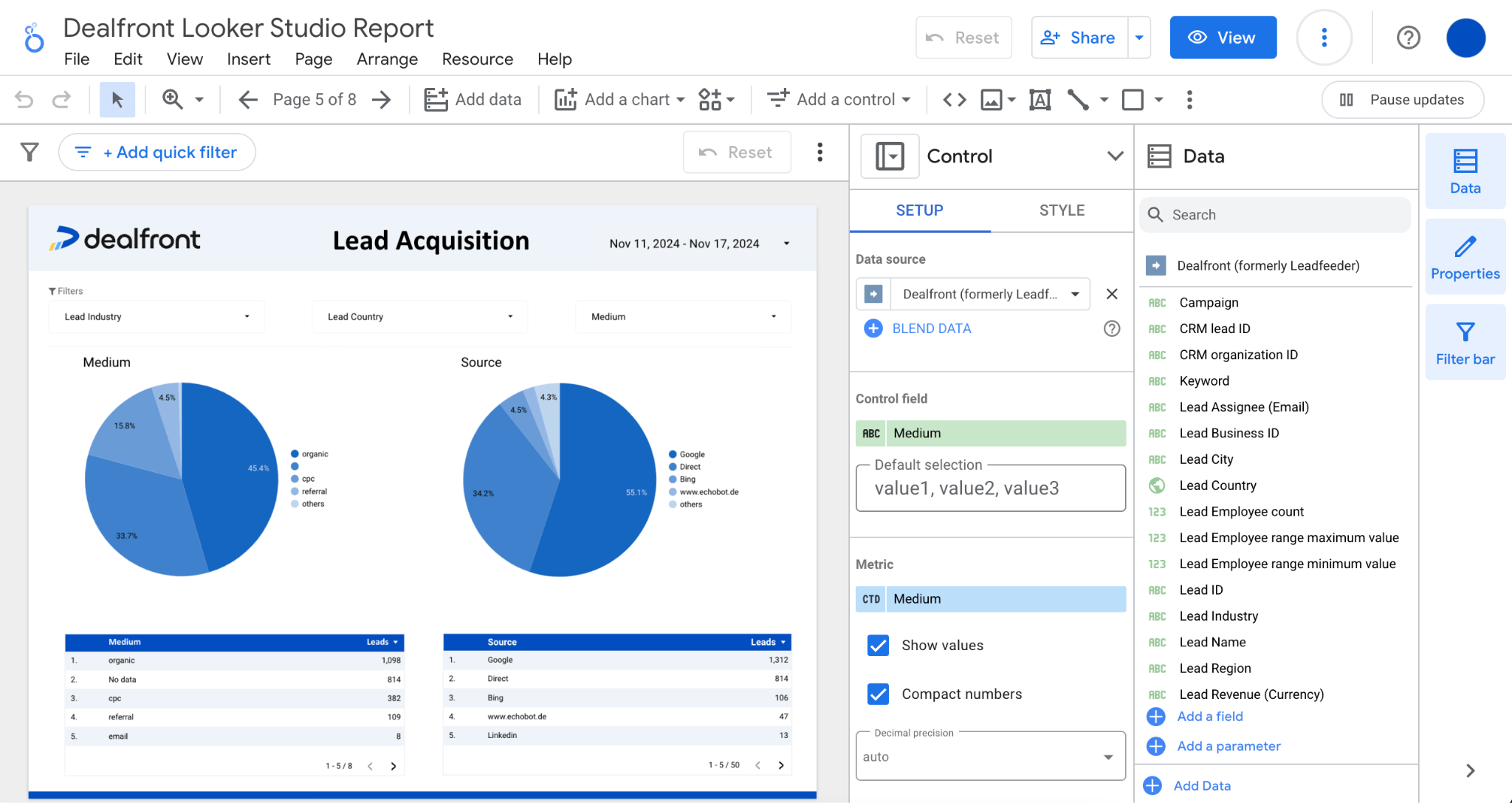
Leadfeeder identifies the companies visiting your website, even if they don't fill out a form. It's a powerful TOFU and MOFU tool for B2B marketers, turning anonymous traffic into actionable sales leads.
Key Features for Funnel Tracking:
- Company identification: See which companies are on your site, the pages they viewed, and how they found you.
- CRM integration: Automatically syncs identified companies with your CRM (like Salesforce or HubSpot) to create new leads or enrich existing ones.
- Lead filtering and scoring: Prioritize the most promising leads based on their on-site behavior and firmographic data.
Comparison of Top Funnel Tracking Platforms
Choosing the right tool depends on your specific needs, budget, and existing technology stack. This table provides a high-level comparison of the leading platforms.
How to Set Up Your Funnel Tracking for Success
Buying a tool is just the first step. Proper setup is critical for gathering accurate, actionable data. Follow this step-by-step process.
- Define your funnel stages and KPIs: Clearly map out the specific steps a user takes on their journey. For each step, define the key metric that signals success (e.g., for 'Sign Up', the KPI is a successful form submission).
- Choose and install your core tools: Start with a foundation. At a minimum, this is usually Google Analytics for web traffic and a CRM like HubSpot for lead management. Install their tracking codes on every page of your site.
- Implement consistent UTM tracking: Use UTM parameters on all your marketing campaigns. This tags incoming traffic with its source, medium, and campaign name. It is essential for understanding which channels are driving funnel performance. A consistent strategy is key, so make sure to check out UTM tracking best practices.
- Set up goals and events: In your tools (like GA4 or Mixpanel), define the key actions you identified in step 1 as conversion events or goals. This tells the tool what to measure.
- Integrate your data sources: This is the most crucial step. Use a platform like Improvado to connect all your tools. Pipe your ad platform data, web analytics data, and CRM data into a single location like a marketing data warehouse. This allows for true cross-channel analysis.
- Build your dashboards: With your unified data, create dashboards in a BI tool. Visualize your entire funnel, from initial ad impression to final sale, in one view. Track conversion rates between each stage.
- Analyze, hypothesize, and test: Use your dashboards to find leaks. Form a hypothesis about why users are dropping off (e.g., "The shipping cost is shown too late"). Run an A/B test to see if your proposed change improves the conversion rate. Repeat this process continuously.
Advanced Funnel Analysis Techniques to Maximize ROI
Basic funnel tracking shows where users drop off. Advanced analysis explains why. That distinction drives meaningful optimization.
True funnel optimization requires segmentation, attribution rigor, and longitudinal analysis.
User Segmentation
Averages hide performance gaps. Segment your funnel to expose structural differences.
Analyze performance by traffic source. Compare paid search, paid social, organic, and referral. Measure not only conversion rate, but downstream metrics such as MQL-to-SQL rate, pipeline value, and revenue per user.
- Segment by device: Mobile drop-offs often indicate UX friction, slow load times, or payment flow issues. Desktop may drive higher AOV but lower volume.
- Segment by geography and demographic attributes: Regional pricing sensitivity, shipping constraints, or localization gaps often surface here.
- Segment by behavior: Compare users who viewed pricing pages, product videos, or case studies versus those who did not. Behavioral cohorts often reveal high-intent signals that outperform surface-level metrics.
The goal is to identify which segments convert efficiently and which consume budget without progressing through the funnel.
Multi-Touch Attribution
Single-touch attribution distorts funnel reality. Most conversions involve multiple interactions across channels and time.
Last-click attribution overvalues bottom-of-funnel channels. First-click attribution overvalues awareness. Neither reflects the full journey.
Advanced models distribute credit more accurately:
- Linear attribution assigns equal weight to each touchpoint.
- Time-decay prioritizes interactions closer to conversion.
- Position-based models emphasize first and last interactions.
More mature teams implement data-driven or algorithmic attribution using historical path analysis.
Attribution clarity improves budget allocation. It prevents over-investment in channels that appear efficient but primarily close demand generated elsewhere.
Cohort Analysis
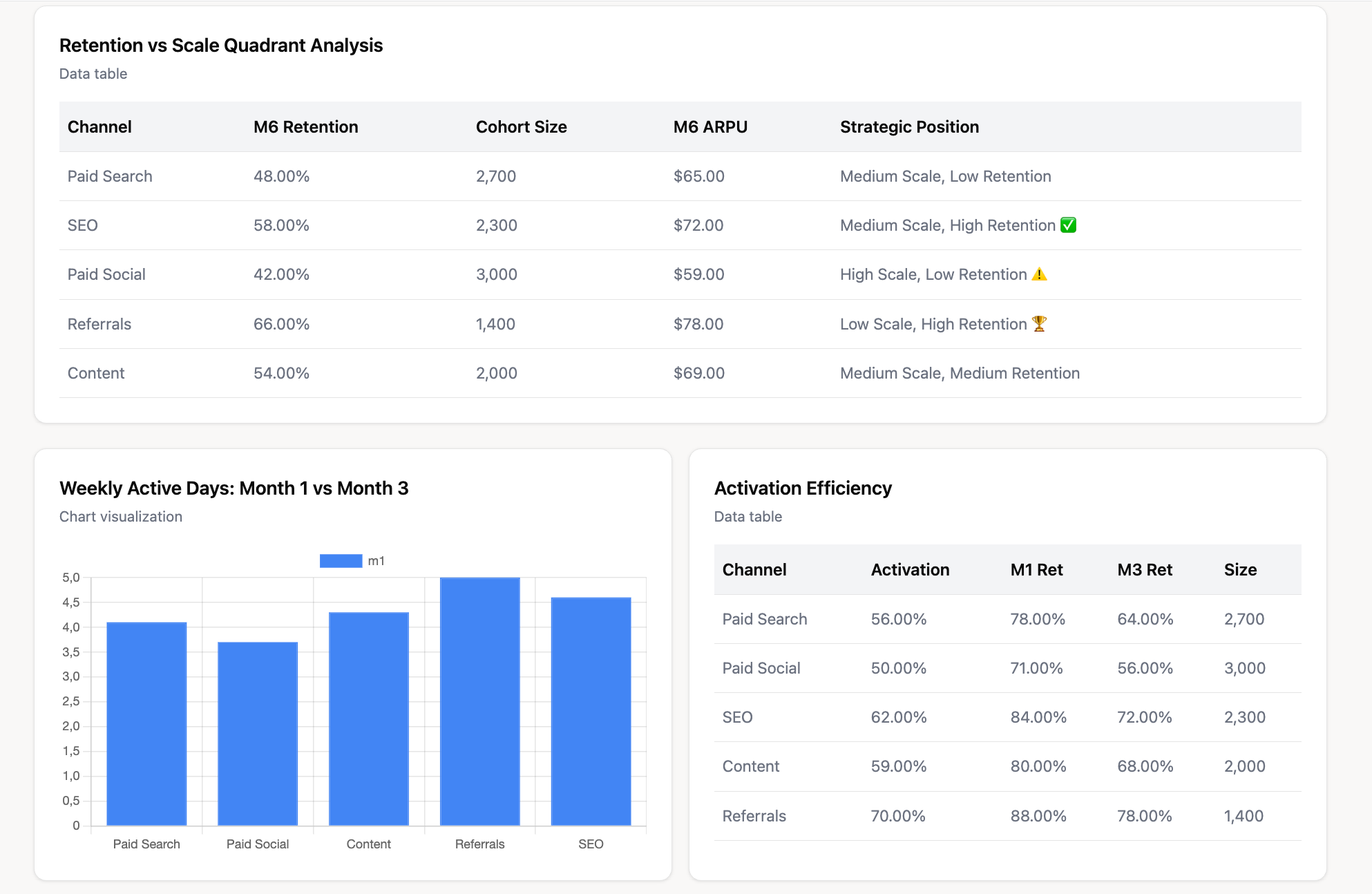
Cohort analysis shifts focus from short-term conversions to long-term value.
Group users by acquisition date, campaign, or channel. Track their behavior over time. Measure retention, repeat purchase rate, expansion revenue, and churn.
This reveals quality differences between acquisition sources. A channel with higher CPA may still outperform if its cohorts generate stronger lifetime value.
Cohort analysis also surfaces seasonality effects and campaign-driven behavior shifts.
Advanced funnel analysis moves beyond “Did they convert?”
It answers “Which users convert sustainably, through which paths, and at what long-term value?”
Conclusion
Funnel tracking tools are the bedrock of any successful digital marketing strategy. By moving from guesswork to a data-driven approach, you can systematically improve your customer journey, plug costly leaks, and allocate resources with confidence. The goal is to create a seamless experience that guides potential customers to conversion and turns them into lifelong advocates.
The journey starts with understanding the stages of your funnel and the key metrics that define success. From there, you can build a powerful stack of tools for web analytics, CRM, product engagement, and behavioral analysis.
However, the true competitive advantage comes from breaking down data silos. Unifying all your funnel data with a platform like Improvado provides the single source of truth needed to make holistic, impactful decisions that drive sustainable growth.
.png)



.png)
